- Home
- George R. R. Martin
The Sworn Sword Page 3
The Sworn Sword Read online
Page 3
“Dake, m’lord,” Ser Bennis said. “Begging your lordly pardon, you knew him and I never did, but his name were Dake.”
“If it please m’lord, I could go to Goldengrove and tell Lord Rowan of this dam,” said Dunk. Rowan was the old knight’s liege lord. The Red Widow held her lands of him as well.
“Rowan? No, look for no help there. Lord Rowan’s sister wed Lord Wyman’s cousin Wendell, so he is kin to the Red Widow. Besides, he loves me not. Ser Duncan, on the morrow you must make the rounds of all my villages, and roust out every able-bodied man of fighting age. I am old, but I am not dead. The woman will soon find that the chequy lion still has claws!”
Two, Dunk thought glumly, and I am one of them.
Ser Eustace’s lands supported three small villages, none more than a handful of hovels, sheepfolds, and pigs. The largest boasted a thatched one-room sept with crude pictures of the Seven scratched upon the walls in charcoal. Mudge, a stoop-backed old swineherd who’d once been to Oldtown, led devotions there every seventh day. Twice a year a real septon came through to forgive sins in the Mother’s name. The smallfolk were glad of the forgiveness, but hated the septon’s visits all the same, since they were required to feed him.
They seemed no more pleased by the sight of Dunk and Egg. Dunk was known in the villages, if only as Ser Eustace’s new knight, but not so much as a cup of water was offered him. Most of the men were in the fields, so it was largely women and children who crept out of the hovels at their coming, along with a few grandfathers too infirm for work. Egg bore the Osgrey banner, the chequy lion green and gold, rampant upon its field of white. “We come from Standfast with Ser Eustace’s summons,” Dunk told the villagers. “Every able-bodied man between the ages of fifteen and fifty is commanded to assemble at the tower on the morrow.”
“Is it war?” asked one thin woman, with two children hiding behind her skirts and a babe sucking at her breast. “Is the black dragon come again?”
“There are no dragons in this, black or red,” Dunk told her. “This is between the chequy lion and the spiders. The Red Widow has taken your water.”
The woman nodded, though she looked askance when Egg took off his hat to fan his face. “That boy got no hair. He sick?”
“It’s shaved,” said Egg. He put the hat back on, turned Maester’s head, and rode off slowly. The boy is in a prickly mood today. He had hardly said a word since they set out. Dunk gave Thunder a touch of the spur and soon caught the mule. “Are you angry that I did not take your part against Ser Bennis yesterday?” he asked his sullen squire, as they made for the next village. “I like the man no more than you, but he is a knight. You should speak to him with courtesy.”
“I’m your squire, not his,” the boy said. “He’s dirty and mean-mouthed, and he pinches me.”
If he had an inkling who you were, he’d piss himself before he laid a finger on you. “He used to pinch me, too.” Dunk had forgotten that, till Egg’s words brought it back. Ser Bennis and Ser Arlan had been among a party of knights hired by a Dornish merchant to see him safe from Lannisport to the Prince’s Pass. Dunk had been no older than Egg, though taller. He would pinch me under the arm so hard he’d leave a bruise. His fingers felt like iron pincers, but I never told Ser Arlan. One of the other knights had vanished near Stoney Sept, and it was bruited about that Bennis had gutted him in a quarrel. “If he pinches you again, tell me and I’ll end it. Till then, it does not cost you much to tend his horse.”
“Someone has to,” Egg agreed. “Bennis never brushes him. He never cleans his stall. He hasn’t even named him!”
“Some knights never name their horses,” Dunk told him. “That way, when they die in battle, the grief is not so hard to bear. There are always more horses to be had, but it’s hard to lose a faithful friend.” Or so the old man said, but he never took his own counsel. He named every horse he ever owned. So had Dunk. “We’ll see how many men turn up at the tower… but whether it’s five or fifty, you’ll need to do for them as well.”
Egg looked indignant. “I have to serve smallfolk ?”
“Not serve. Help. We need to turn them into fighters.” If the Widow gives us time enough. “If the gods are good, a few will have done some soldiering before, but most will be green as summer grass, more used to holding hoes than spears. Even so, a day may come when our lives depend on them. How old were you when you first took up a sword?”
“I was little, ser. The sword was made from wood.”
“Common boys fight with wooden swords, too, only theirs are sticks and broken branches. Egg, these men may seem fools to you. They won’t know the proper names for bits of armor, or the arms of the great Houses, or which king it was who abolished the lord’s right to the first night… but treat them with respect all the same. You are a squire born of noble blood, but you are still a boy. Most of them will be men grown. A man has his pride, no matter how lowborn he may be. You would seem just as lost and stupid in their villages. And if you doubt that, go hoe a row and shear a sheep, and tell me the names of all the weeds and wildflowers in Wat’s Wood.”
The boy considered for a moment. “I could teach them the arms of the great Houses, and how Queen Alysanne convinced King Jaehaerys to abolish the first night. And they could teach me which weeds are best for making poisons, and whether those green berries are safe to eat.”
“They could,” Dunk agreed, “but before you get to King Jaehaerys, you’d best help us teach them how to use a spear. And don’t go eating anything that Maester won’t.”
The next day a dozen would-be warriors found their way to Standfast to assemble among the chickens. One was too old, two were too young, and one skinny boy turned out to be a skinny girl. Those Dunk sent back to their villages, leaving eight: three Wats, two Wills, a Lem, a Pate, and Big Rob the lackwit. A sorry lot, he could not help but think. The strapping handsome peasant boys who won the hearts of highborn maidens in the songs were nowhere to be seen. Each man was dirtier than the last. Lem was fifty if he was a day, and Pate had weepy eyes; they were the only two who had ever soldiered before. Both had been gone with Ser Eustace and his sons to fight in the Blackfyre Rebellion. The other six were as green as Dunk had feared. All eight had lice. Two of the Wats were brothers. “Guess your mother didn’t know no other name,” Bennis said, cackling.
As far as arms went, they brought a scythe, three hoes, an old knife, some stout wooden clubs. Lem had a sharpened stick that might serve for a spear, and one of the Wills allowed that he was good at chucking rocks. “Well and good,” Bennis said, “we got us a bloody trebuchet.” After that the man was known as Treb.
“Are any of you skilled with a longbow?” Dunk asked them.
The men scuffed at the dirt, while hens pecked the ground around them. Pate of the weepy eyes finally answered. “Begging your pardon, ser, but m’lord don’t permit us longbows. Osgrey deers is for the chequy lions, not the likes o’ us.”
“We will get swords and helms and chainmail?” the youngest of the three Wats wanted to know.
“Why, sure you will,” said Bennis, “just as soon as you kill one o’ the Widow’s knights and strip his bloody corpse. Make sure you stick your arm up his horse’s arse, too, that’s where you’ll find his silver.” He pinched young Wat beneath his arm until the lad squealed in pain, then marched the whole lot of them off to Wat’s Wood to cut some spears.
When they came back, they had eight fire-hardened spears of wildly unequal length, and crude shields of woven branches. Ser Bennis had made himself a spear as well, and he showed them how to thrust with the point and use the shaft to parry… and where to put the point to kill. “The belly and the throat are best, I find.” He pounded his fist against his chest. “Right there’s the heart, that will do the job as well. Trouble is, the ribs is in the way. The belly’s nice and soft. Gutting’s slow, but certain. Never knew a man to live when his guts was hanging out. Now if some fool goes and turns his back on you, put your point between his shoulder blades or thro
ugh his kidney. That’s here. They don’t live long once you prick ’em in the kidney.”
Having three Wats in the company caused confusion when Bennis was trying to tell them what to do.
“We should give them village names, ser,” Egg suggested, “like Ser Arlan of Pennytree, your old master.” That might have worked, only their villages had no names, either. “Well,” said Egg, “we could call them for their crops, ser.” One village sat amongst bean fields, one planted mostly barleycorn, and the third cultivated rows of cabbages, carrots, onions, turnips, and melons. No one wanted to be a Cabbage or a Turnip, so the last lot became the Melons. They ended up with four Barleycorns, two Melons, and two Beans. As the brothers Wat were both Barleycorns, some further distinction was required. When the younger brother made mention of once having fallen down the village well, Bennis dubbed him “Wet Wat,” and that was that. The men were thrilled to have been given “lord’s names,” save for Big Rob, who could not seem to remember whether he was a Bean or a Barleycorn. Once all of them had names and spears, Ser Eustace emerged from Standfast to address them. The old knight stood outside the tower door, wearing his mail and plate beneath a long woolen surcoat that age had turned more yellow than white. On front and back it bore the chequy lion, sewn in little squares of green and gold. “Lads,” he said, “you all remember Dake. The Red Widow threw him in a sack and drowned him. She took his life, and now she thinks to take our water, too, the Chequy Water that nourishes our crops… but she will not!” He raised his sword above his head. “For Osgrey!” he said ringingly. “For Standfast!”
“Osgrey!” Dunk echoed. Egg and the recruits took up the shout. “Ogsrey! Osgrey! For Standfast!”
Dunk and Bennis drilled the little company amongst the pigs and chickens, while Ser Eustace watched from the balcony above. Sam Stoops had stuffed some old sacks with soiled straw. Those became their foes. The recruits began practicing their spear work as Bennis bellowed at them. “Stick and twist and rip it free. Stick and twist and rip, but get the damned thing out! You’ll be wanting it soon enough for the next one. Too slow, Treb, too damned slow. If you can’t do it quicker, go back to chucking rocks. Lem, get your weight behind your thrust. There’s a boy. And in and out and in and out. Fuck ’em with it, that’s the way, in and out, rip ’em, rip ’em, rip ’em.”
When the sacks had been torn to pieces by half a thousand spear thrusts and all the straw spilled out onto the ground, Dunk donned his mail and plate and took up a wooden sword to see how the men would fare against a livelier foe.
Not too well, was the answer. Only Treb was quick enough to get a spear past Dunk’s shield, and he only did it once. Dunk turned one clumsy lurching thrust after another, pushed their spears aside, and bulled in close. If his sword had been steel instead of pine, he would have slain each of them half a dozen times. “You’re dead once I get past your point,” he warned them, hammering at their legs and arms to drive the lesson home. Treb and Lem and Wet Wat soon learned how to give ground, at least. Big Rob dropped his spear and ran, and Bennis had to chase him down and drag him back in tears. The end of the afternoon saw the lot of them all bruised and battered, with fresh blisters rising on their callused hands from where they gripped the spears. Dunk bore no marks himself, but he was half drowned by sweat by the time Egg helped him peel his armor off.
As the sun was going down, Dunk marched their little company down into the cellar and forced them all to have a bath, even those who’d had one just last winter. Afterward Sam Stoops’ wife had bowls of stew for all, thick with carrots, onions, and barley. The men were bone tired, but to hear them talk every one would soon be twice as deadly as a Kingsguard knight. They could hardly wait to prove their valor. Ser Bennis egged them on by telling them of the joys of the soldier’s life; loot and women, chiefly. The two old hands agreed with him. Lem had brought back a knife and a pair of fine boots from the Blackfyre Rebellion, to hear him tell; the boots were too small for him to wear, but he had them hanging on his wall. And Pate could not say enough about some of the camp followers he’d known following the dragon.
Sam Stoops had set them up with eight straw pallets in the undercroft, so once their bellies were filled they all went off to sleep. Bennis lingered long enough to give Dunk a look of disgust. “Ser Useless should of fucked a few more peasant wenches while he still had a bit o’ sap left in them old sad balls o’ his,” he said. “If he’d sown himself a nice crop o’ bastard boys back then, might be we’d have some soldiers now.”
“They seem no worse than any other peasant levy.” Dunk had marched with a few such while squiring for Ser Arlan.
“Aye,” Ser Bennis said. “In a fortnight they might stand their own, ’gainst some other lot o’ peasants. Knights, though?” He shook his head, and spat.
Standfast’s well was in the undercellar, in a dank chamber walled in stone and earth. It was there that Sam Stoops’ wife soaked and scrubbed and beat the clothes before carrying them up to the roof to dry. The big stone washtub was also used for baths. Bathing required drawing water from the well bucket by bucket, heating it over the hearth in a big iron kettle, emptying the kettle into the tub, then starting the whole process once again. It took four buckets to fill the kettle, and three kettles to fill the tub. By the time the last kettle was hot the water from the first had cooled to lukewarm. Ser Bennis had been heard to say that the whole thing was too much bloody bother, which was why he crawled with lice and fleas and smelled like a bad cheese.
Dunk at least had Egg to help him when he felt in dire need of a good wash, as he did tonight. The lad drew the water in a glum silence, and hardly spoke as it was heating. “Egg?” Dunk asked as the last kettle was coming to a boil. “Is aught amiss?” When Egg made no reply, he said, “Help me with the kettle.”
Together they wrestled it from hearth to tub, taking care not to splash themselves. “Ser,” the boy said, “what do you think Ser Eustace means to do?”
“Tear down the dam, and fight off the Widow’s men if they try to stop us.” He spoke loudly, so as to be heard above the splashing of the bathwater. Steam rose in a white curtain as they poured, bringing a flush to his face.
“Their shields are woven wood, ser. A lance could punch right through them, or a crossbow bolt.”
“We may find some bits of armor for them, when they’re ready.” That was the best they could hope for.
“They might be killed, ser. Wet Wat is still half a boy. Will Barleycorn is to be married the next time the septon comes. And Big Rob doesn’t even know his left foot from his right.”
Dunk let the empty kettle thump down onto the hard-packed earthen floor. “Roger of Pennytree was younger than Wet Wat when he died on the Redgrass Field. There were men in your father’s host who’d been just been married, too, and other men who’d never even kissed a girl. There were hundreds who didn’t know their left foot from their right, maybe thousands.”
“That was different,” Egg insisted. “That was war.”
“So is this. The same thing, only smaller.”
“Smaller and stupider, ser.”
“That’s not for you or me to say,” Dunk told him. “It’s their duty to go to war when Ser Eustace summons them… and to die, if need be.”
“Then we shouldn’t have named them, ser. It will only make the grief harder for us when they die.” He screwed up his face. “If we used my boot—”
“No.” Dunk stood on one leg to pull his own boot off.
“Yes, but my father—”
“No.” The second boot went the way of the first.
“We—”
“No.” Dunk pulled his sweat-stained tunic up over his head and tossed it at Egg. “Ask Sam Stoops’ wife to wash that for me.”
“I will, ser, but—”
“No, I said. Do you need a clout in the ear to help you hear better?” He unlaced his breeches. Underneath was only him; it was too hot for smallclothes. “It’s good that you’re concerned for Wat and Wat and Wat and the re
st of them, but the boot is only meant for dire need.” How many eyes does Lord Bloodraven have? A thousand eyes, and one. “What did your father tell you, when he sent you off to squire for me?”
“To keep my hair shaved or dyed, and tell no man my true name,” the boy said, with obvious reluctance. Egg had served Dunk for a good year and a half, though some days it seemed like twenty. They had climbed the Prince’s Pass together and crossed the deep sands of Dorne, both red and white. A poleboat had taken them down the Greenblood to the Planky Town, where they took passage for Oldtown on the galleas White Lady . They had slept in stables, inns, and ditches, broken bread with holy brothers, whores, and mummers, and chased down a hundred puppet shows. Egg had kept Dunk’s horse groomed, his longsword sharp, his mail free of rust. He had been as good a companion as any man could wish for, and the hedge knight had come to think of him almost as a little brother. He isn’t, though. This egg had been hatched of dragons, not of chickens. Egg might be a hedge knight’s squire, but Aegon of House Targaryen was the fourth and youngest son of Maekar, Prince of Summerhall, himself the fourth son of the late King Daeron the Good, the Second of His Name, who’d sat the Iron Throne for five-and-twenty years until the Great Spring Sickness took him off.
“So far as most folk are concerned, Aegon Targaryen went back to Summerhall with his brother Daeron after the tourney at Ashford Meadow,” Dunk reminded the boy. “Your father did not want it known that you were wandering the Seven Kingdoms with some hedge knight. So let’s hear no more about your boot.”

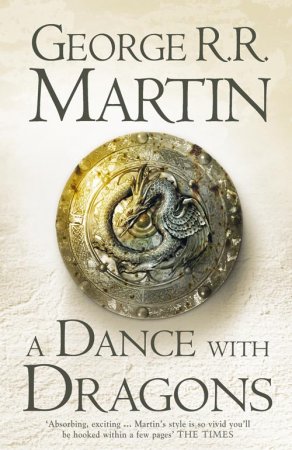 A Dance with Dragons
A Dance with Dragons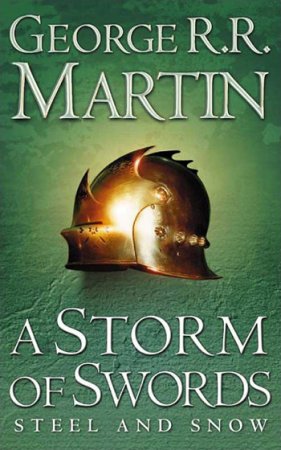 A Storm of Swords
A Storm of Swords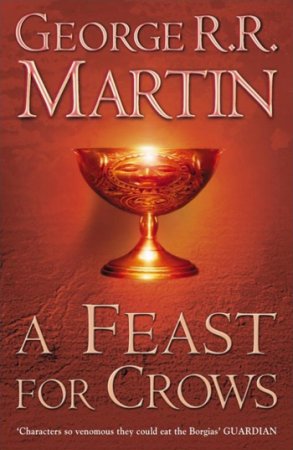 A Feast for Crows
A Feast for Crows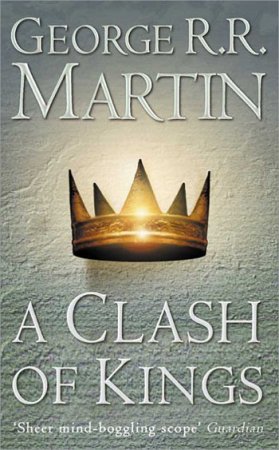 A Clash of Kings
A Clash of Kings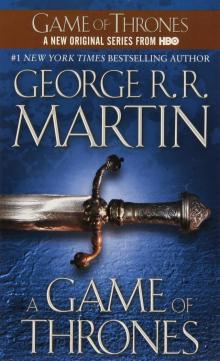 A Game of Thrones
A Game of Thrones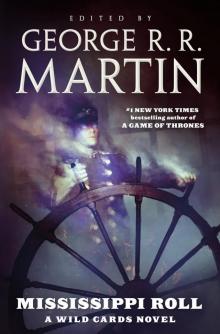 Mississippi Roll
Mississippi Roll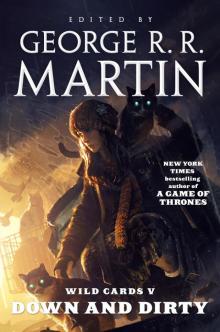 Wild Cards V: Down and Dirty
Wild Cards V: Down and Dirty Busted Flush
Busted Flush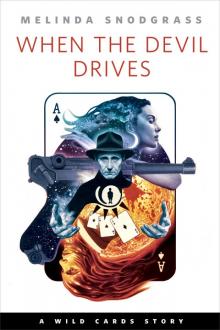 When the Devil Drives
When the Devil Drives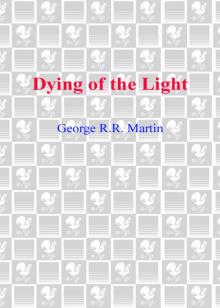 Dying of the Light
Dying of the Light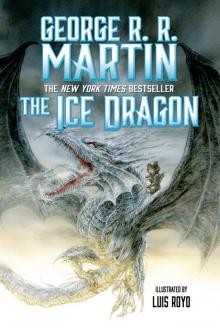 The Ice Dragon
The Ice Dragon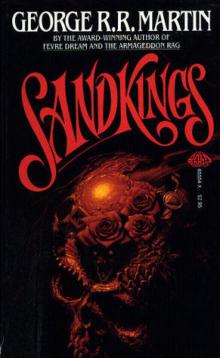 Sandkings
Sandkings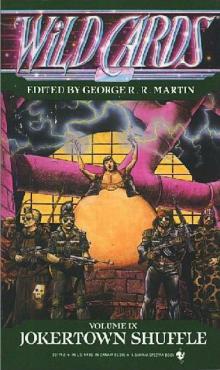 Jokertown Shuffle
Jokertown Shuffle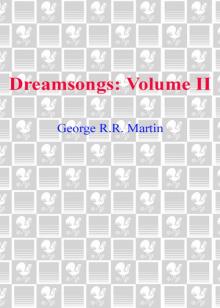 Dreamsongs. Volume II
Dreamsongs. Volume II Deuces Down
Deuces Down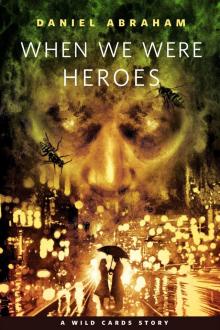 When We Were Heroes
When We Were Heroes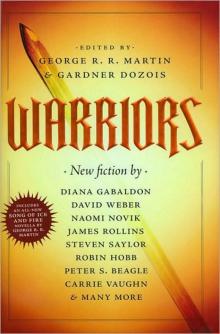 Warriors
Warriors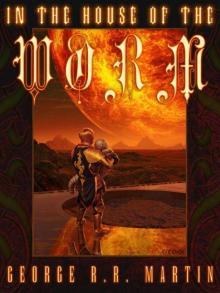 In the House of the Worm
In the House of the Worm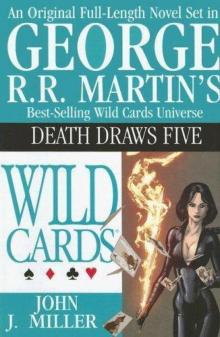 Death Draws Five
Death Draws Five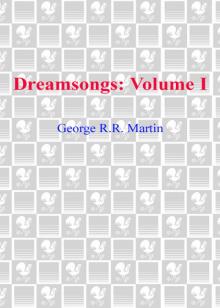 Dreamsongs. Volume I
Dreamsongs. Volume I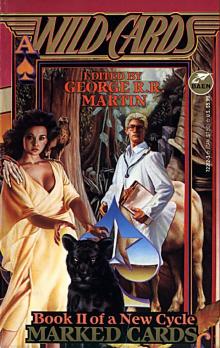 Marked Cards
Marked Cards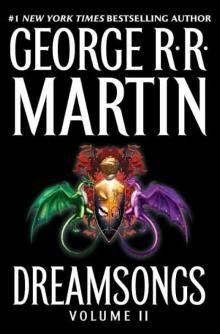 Dreamsongs
Dreamsongs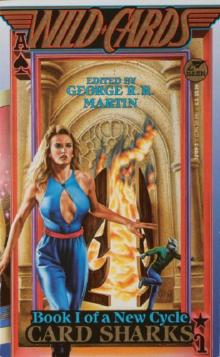 Card Sharks
Card Sharks Dangerous Women
Dangerous Women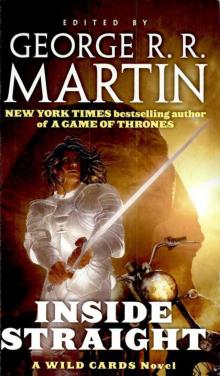 Inside Straight
Inside Straight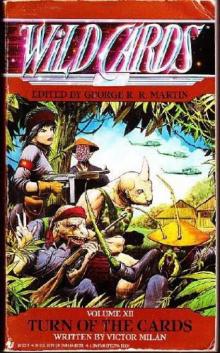 Turn of the Cards
Turn of the Cards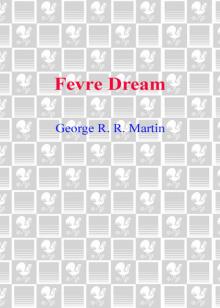 Fevre Dream
Fevre Dream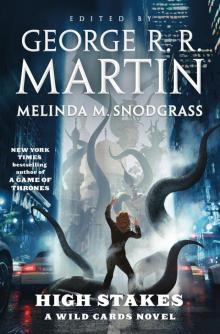 High Stakes: A Wild Cards Novel
High Stakes: A Wild Cards Novel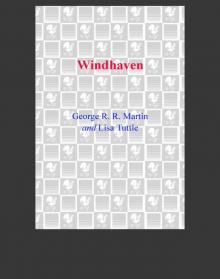 Windhaven
Windhaven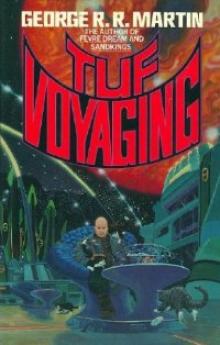 Tuf Voyaging
Tuf Voyaging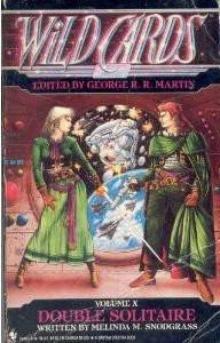 Double Solitaire
Double Solitaire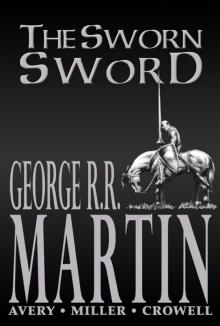 The Sworn Sword
The Sworn Sword Low Chicago
Low Chicago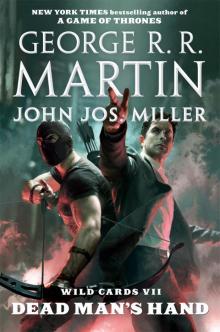 Dead Man's Hand
Dead Man's Hand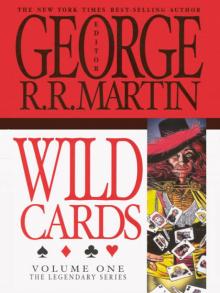 Wild Cards
Wild Cards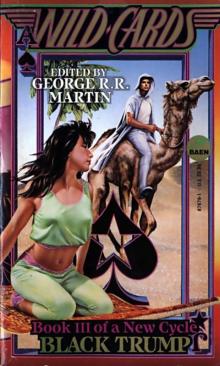 Black Trump
Black Trump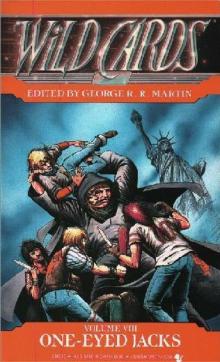 One Eyed Jacks
One Eyed Jacks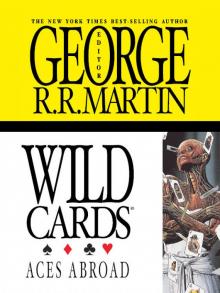 Wild Cards: Aces Abroad
Wild Cards: Aces Abroad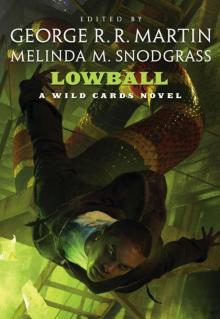 Lowball: A Wild Cards Novel
Lowball: A Wild Cards Novel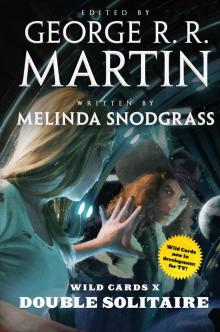 Double Solitaire (2019 Edition)
Double Solitaire (2019 Edition)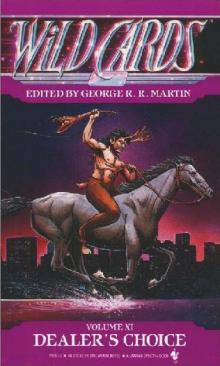 Dealer's Choice
Dealer's Choice Ace in the Hole
Ace in the Hole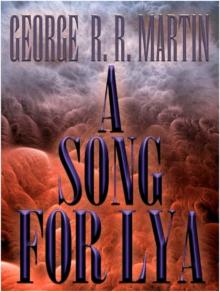 A Song for Lya: And Other Stories
A Song for Lya: And Other Stories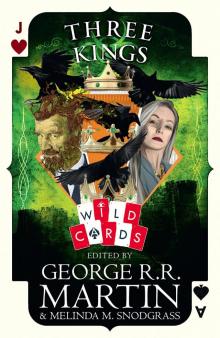 Three Kings
Three Kings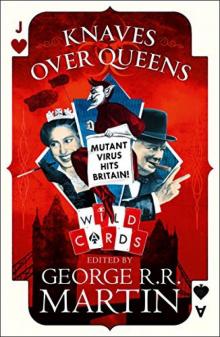 Knaves Over Queens
Knaves Over Queens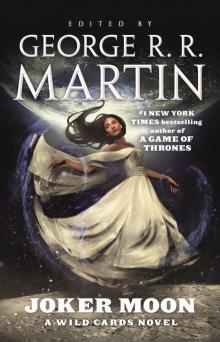 Joker Moon
Joker Moon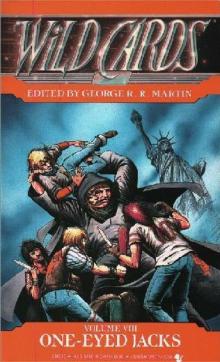 One Eyed Jacks wc-8
One Eyed Jacks wc-8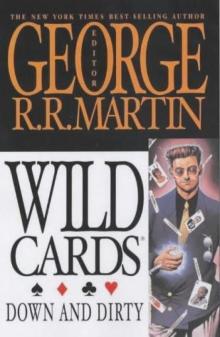 Down And Dirty wc-5
Down And Dirty wc-5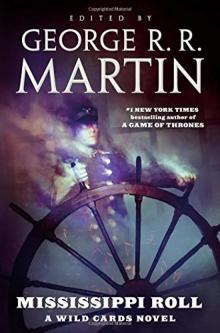 Mississippi Roll_A Wild Cards Novel
Mississippi Roll_A Wild Cards Novel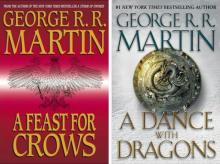 A Feast for Dragons
A Feast for Dragons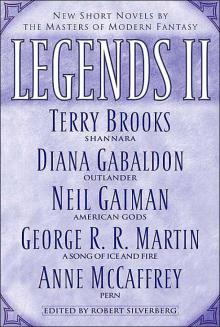 The Sworn Sword ttodae-2
The Sworn Sword ttodae-2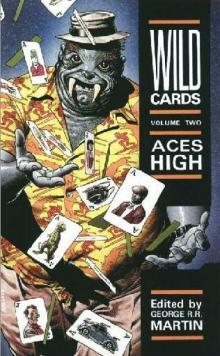 Aces High wc-2
Aces High wc-2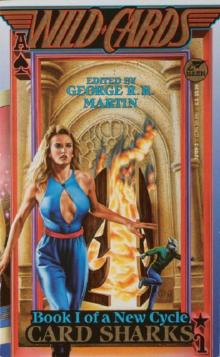 Wild Cards 13 : Card Sharks
Wild Cards 13 : Card Sharks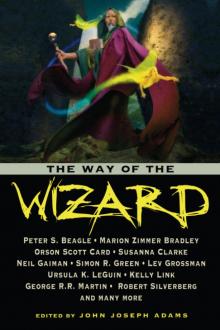 Way of the Wizard
Way of the Wizard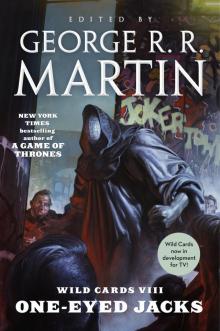 Wild Cards VIII: One-Eyed Jacks
Wild Cards VIII: One-Eyed Jacks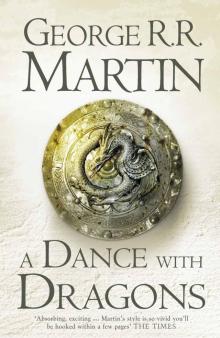 A Dance With Dragons: Book 5 of A Song of Ice and Fire (Song of Ice & Fire 5)
A Dance With Dragons: Book 5 of A Song of Ice and Fire (Song of Ice & Fire 5)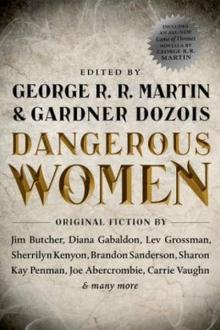 The Princess and The Queen, Or, The Blacks and The Greens (a song of ice and fire)
The Princess and The Queen, Or, The Blacks and The Greens (a song of ice and fire)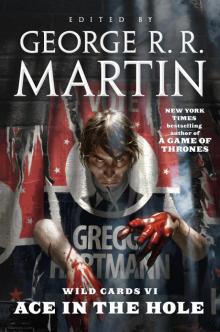 Wild Cards VI--Ace in the Hole
Wild Cards VI--Ace in the Hole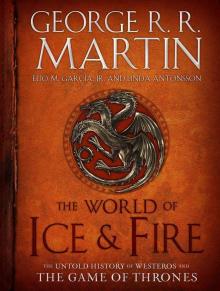 The World of Ice & Fire: The Untold History of Westeros and the Game of Thrones (A Song of Ice and Fire)
The World of Ice & Fire: The Untold History of Westeros and the Game of Thrones (A Song of Ice and Fire)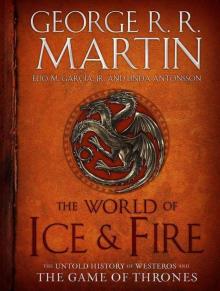 The World of Ice & Fire: The Untold History of Westeros and the Game of Thrones
The World of Ice & Fire: The Untold History of Westeros and the Game of Thrones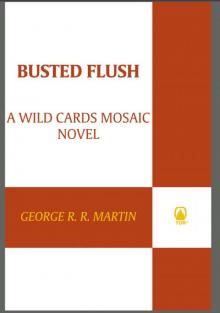 Busted Flush wc-19
Busted Flush wc-19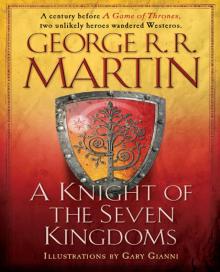 A Knight of the Seven Kingdoms
A Knight of the Seven Kingdoms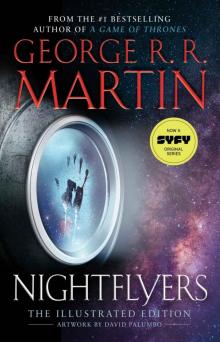 Nightflyers: The Illustrated Edition
Nightflyers: The Illustrated Edition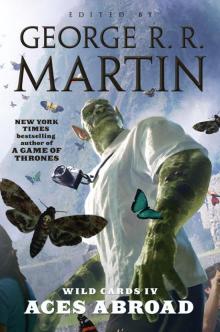 Wild Cards IV
Wild Cards IV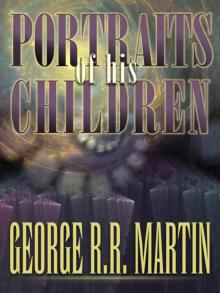 Portraits of His Children
Portraits of His Children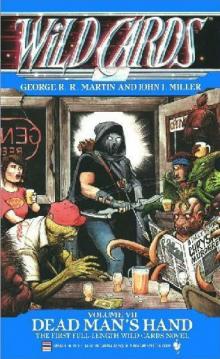 Dead Mans Hand wc-7
Dead Mans Hand wc-7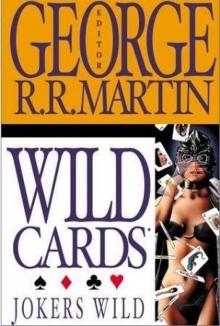 Jokers Wild wc-3
Jokers Wild wc-3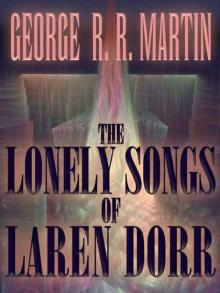 The Lonely Songs of Laren Dorr
The Lonely Songs of Laren Dorr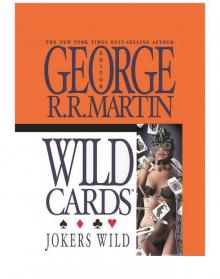 Wild Cards III: Jokers Wild
Wild Cards III: Jokers Wild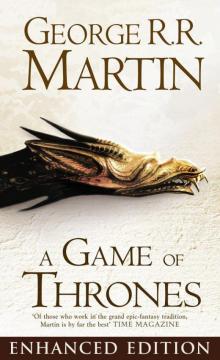 A Game of Thrones Enhanced Edition
A Game of Thrones Enhanced Edition Nightflyers & Other Stories
Nightflyers & Other Stories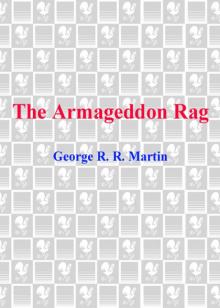 Armageddon Rag
Armageddon Rag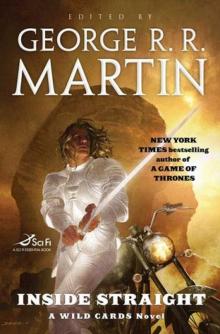 Wild Cards: Inside Straight
Wild Cards: Inside Straight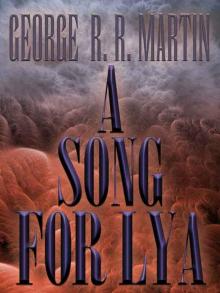 A Song for Lya
A Song for Lya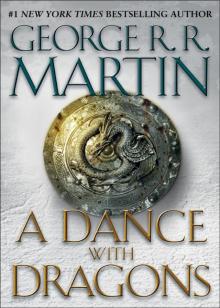 A Dance with Dragons: A Song of Ice and Fire: Book Five
A Dance with Dragons: A Song of Ice and Fire: Book Five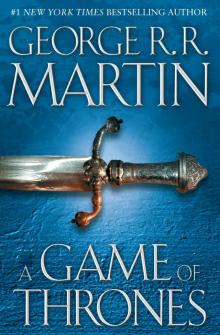 Song of Fire & Ice 01 - A Game of Thrones
Song of Fire & Ice 01 - A Game of Thrones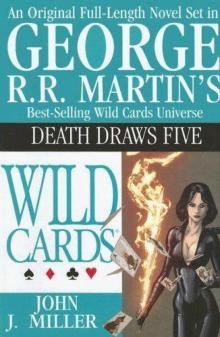 Death Draws Five wc-17
Death Draws Five wc-17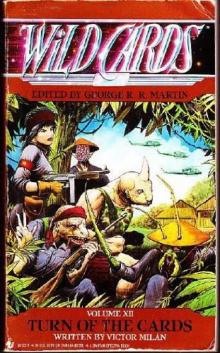 Turn of the Cards w-12
Turn of the Cards w-12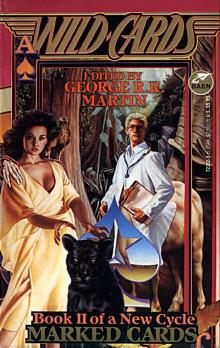 Wild Cards 14 - Marked Cards
Wild Cards 14 - Marked Cards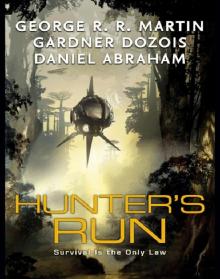 Hunter's Run
Hunter's Run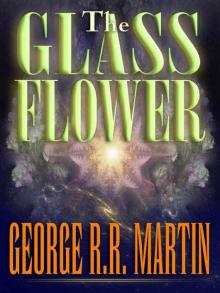 The Glass Flower
The Glass Flower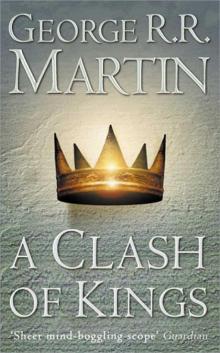 A Clash of Kings asoiaf-2
A Clash of Kings asoiaf-2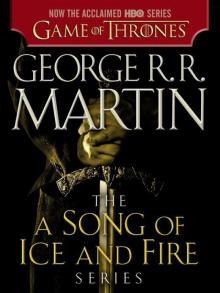 A Game of Thrones 5-Book Bundle: A Song of Ice and Fire Series: A Game of Thrones, A Clash of Kings, A Storm of Swords, A Feast for Crows, and A Dance with Dragons (Song of Ice & Fire)
A Game of Thrones 5-Book Bundle: A Song of Ice and Fire Series: A Game of Thrones, A Clash of Kings, A Storm of Swords, A Feast for Crows, and A Dance with Dragons (Song of Ice & Fire)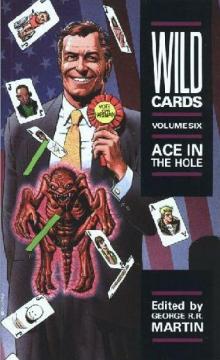 Ace In The Hole wc-6
Ace In The Hole wc-6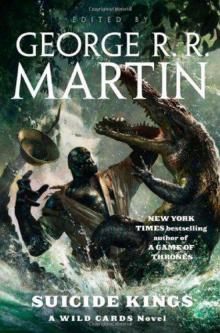 Suicide Kings wc-20
Suicide Kings wc-20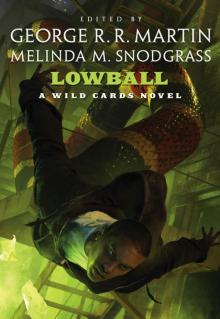 Lowball
Lowball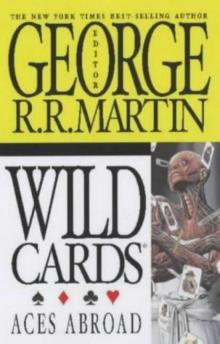 Aces Abroad wc-4
Aces Abroad wc-4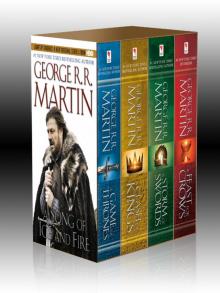 George R. R. Martin's a Game of Thrones 4-Book Bundle
George R. R. Martin's a Game of Thrones 4-Book Bundle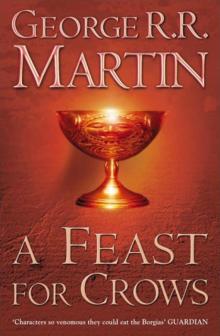 A Feast for Crows asoiaf-4
A Feast for Crows asoiaf-4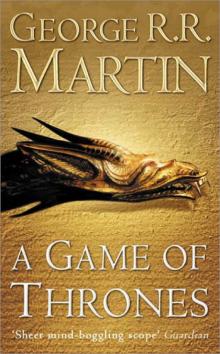 A Game of Thrones asoiaf-1
A Game of Thrones asoiaf-1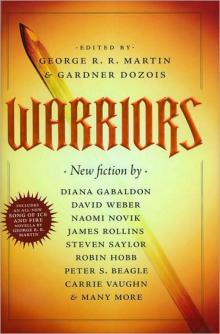 The Mystery Knight ttodae-3
The Mystery Knight ttodae-3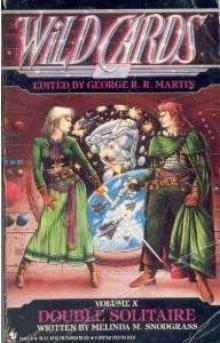 Double Solitaire w-10
Double Solitaire w-10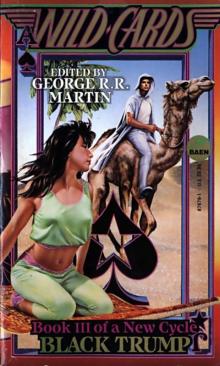 Wild Cards 15 - Black Trump
Wild Cards 15 - Black Trump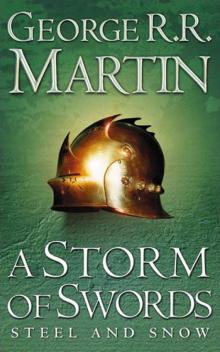 A Storm of Swords asoiaf-3
A Storm of Swords asoiaf-3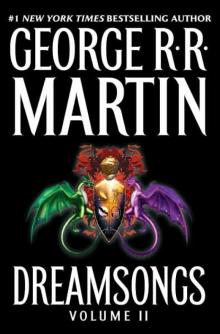 The Hedge Knight ttodae-1
The Hedge Knight ttodae-1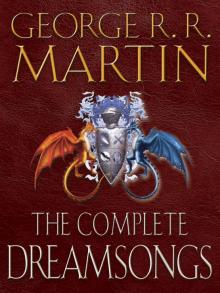 Dreamsongs 2-Book Bundle
Dreamsongs 2-Book Bundle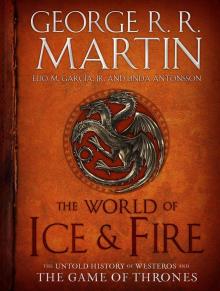 The World of Ice & Fire
The World of Ice & Fire Starlady & Fast-Friend
Starlady & Fast-Friend Old Mars
Old Mars Fantasy For Good: A Charitable Anthology
Fantasy For Good: A Charitable Anthology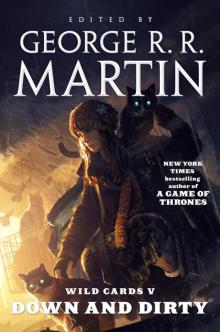 Wild Cards V
Wild Cards V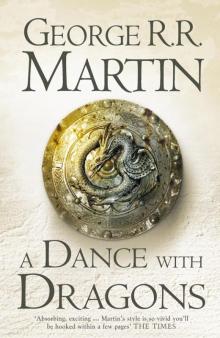 A Dance with Dragons asoiaf-5
A Dance with Dragons asoiaf-5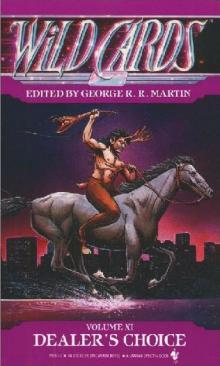 Dealer's Choice w-11
Dealer's Choice w-11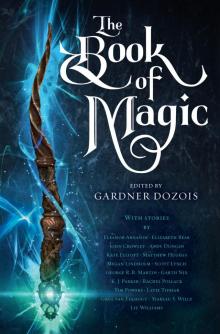 The Book of Magic
The Book of Magic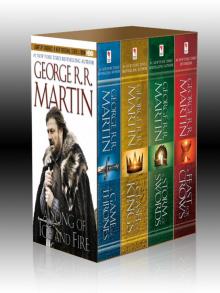 A Game of Thrones 4-Book Bundle
A Game of Thrones 4-Book Bundle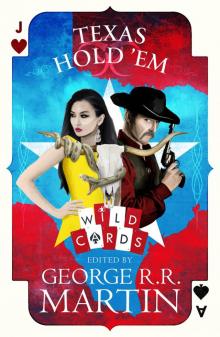 Texas Hold 'Em
Texas Hold 'Em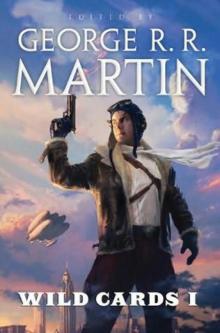 Wildcards wc-1
Wildcards wc-1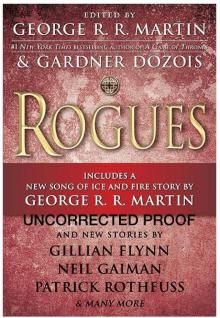 Rogues
Rogues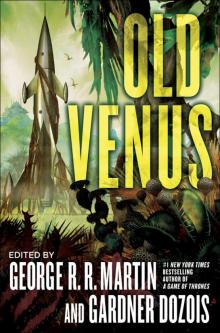 Old Venus
Old Venus